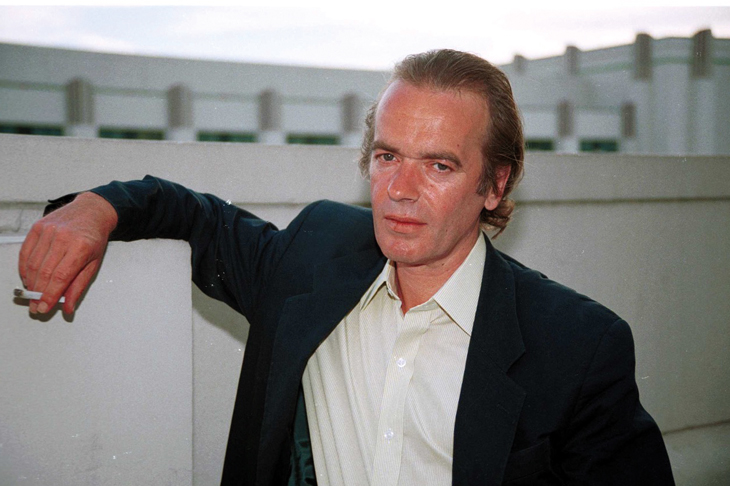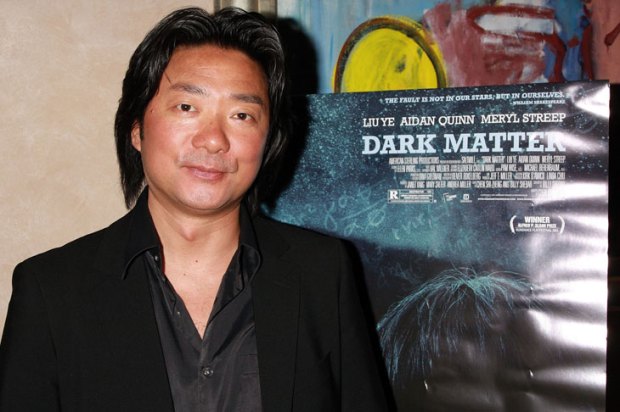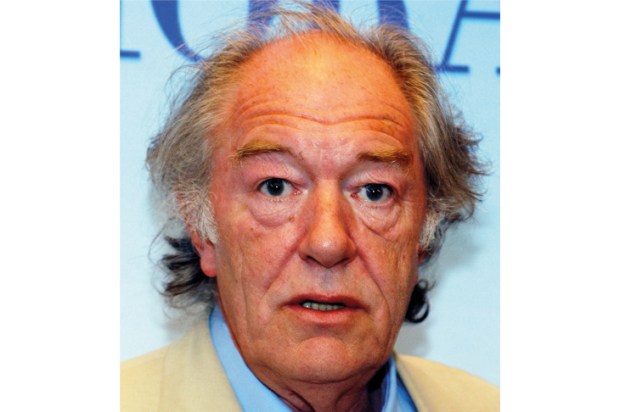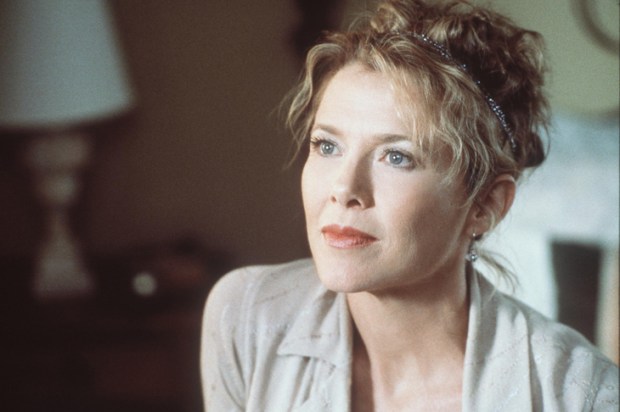It’s strange the world of classics and demi-classics and popular classics we inhabit. Right at the moment there’s the chance to see Liam Neeson of all people play Philip Marlowe, Raymond Chandler’s ironic endlesssly charming sleuth, who’s such a cool and captivating customer that he’s enough all on his own to give trash fiction (call it popular, if you must) a good name. Those Chandler books like Farewell, My Lovely and The Long Goodbye with their pungent understated beguilement, their infinite good-humoured sense of the rollicking fun of the murder story if it’s presented as a form of drollery will outlast most contenders in the hard-boiled stakes to which they technically belong partly because their irony can seem infinite because it’s so lightly borne.
Humphrey Bogart in John Huston’s film of Dashiell Hammett’s The Maltese Falcon might be the greatest exemplar in this domain but Bogart was the born Sam Spade: his Marlowe in The Big Sleep with the very young Lauren Bacall was too tough. Liam Neeson, needless to say, is a bridge much further but then the new film Marlowe is not a direct dramatisation of a Chandler novel but is based on that very serious Irish novelist John Banville’s homage, The Black-Eyed Blonde. Not only is the director Neil Jordan (of The Crying Game fame) also Irish, Liam Neeson, much too towering and bulky for the role anyway, makes no effort to speak in anything but his native Irish accent.
The other night a group of Chandler aficionados put their heads together and came to the conclusion that the best Philip Marlowe was in fact Robert Mitchum who played the gentleman sleuth in a world of Californian hobgoblins on every side of the law in a number of films including a Farewell, My Lovely with Charlotte Rampling. We’re always inclined to undervalue an actor like Mitchum because he was an effortless embodiment of whatever he wanted to project and ease is the essential quality with Marlowe. Of course, Mitchum had any number of noir classics under his belt – he’s the bad guy in the original Cape Fear – and he’s also with a laid-back malignancy that’s terrifying a father with HATE on the knuckles of one hand, LOVE on the other, in one of the greatest and most improbable films ever made, The Night of the Hunter, by that unlikely inhabitant of the American Dream come nightmare, Charles Laughton – the magisterial English character actor who dominates what Agatha Christie herself said was the greatest dramatisation of her work, Billy Wilder’s Witness for the Prosecution. Whereas you would imagine The Night of the Hunter had been dreamt up by Mark Twain in one of his darker moments.
The other crime writer who can arrest the movie-watching mind is Patricia Highsmith whose Deep Water has just been made into a film for Amazon Prime by Adrian Lyne. The female lead is Ana de Armas who caused such a stir when she played Joyce Carol Oates’ version of Marilyn Monroe in Blonde that she was nominated for an Oscar. In this somewhat cluttered melodrama that has been made (with what degree of fidelity is unknown) out of one of Highsmith’s dystopian bits of Americana she is a pert gaminy provocation to murder or at least the rage that might lead to it – because of the overt way she canoodles and cavorts with and generally edges into or over the act of darkness with a variety of handsome young men so that her husband Ben Affleck announces with bland and solemn savagery how he has knocked off their predecessors and given the tiniest fraction of a chance will come after them. Bodies are found dead, shot, bodies float up to the surface of pools, drowned, in his presence. We don’t for the life of us know what’s going on in this film – can it possibly be the ghastly obvious? The wife is a born murderee – to use a term employed by the late great Martin Amis in his masterpiece London Fields – and Ben Affleck is like a #MeToo villain who has come to create his own version of a Bluebeard’s Castle where the woman in his life exists as a fetish, a sex object for calculated annihilation.
Very far from the tranquil forensic charms of Raymond Chandler or the effortless dramatic exposition of Billy Wilder though it’s in fact his rival Hitchcock who gives an early pulsating paradigm of Patricia Highsmith in Strangers on a Train. There is an excellent doco about Highsmith – gay, tough, bleak and compelling – available on Docplay.
How strange it is to hear of the death of Martin Amis. He was in a colossal unignorable way the English writer who could take it up to the Americans. He zigzagged all over the place in terms of achievement but the greatest of the work like the extraordinary novel London Fields with a yob known as Keef and a character called Nicola Six – the murderee in the making – has a breathtaking power and ambition and brilliance. Martin Amis had a capacity to treat the cartoonery of his mind, the dabbling grotesquerie, as the occasion for novelistic treatment that seriously asked for comparison with the stupendous greats of the past – with Dickens, say. His novel Money with its gross hero John Self is taken as the supreme representation of what had gone wrong with Britain under Thatcher but Amis was equal to both the grandeur and the grandiose magnification of everything that could appal the innocent though half the time he would serve it back to the reader as the blackest and maddest kind of comedy.
Think of The Information, the novel about the highbrow writer – the guy who wants a cigarette even when he’s having a cigarette – and the appalling life he leads in the midst of his pursuit of art, more especially as everything he produces makes people come down sick. But Amis wrote every kind of book, good and bad. Experience, his memoir, is one kind of masterpiece that fits no categories and so is his 2020 meta-novel, Inside Story, which has such a fond and impassioned portrait of Christopher Hitchens at its centre. His best work will live forever. Requiescat.
Got something to add? Join the discussion and comment below.
Get 10 issues for just $10
Subscribe to The Spectator Australia today for the next 10 magazine issues, plus full online access, for just $10.
You might disagree with half of it, but you’ll enjoy reading all of it. Try your first month for free, then just $2 a week for the remainder of your first year.














Comments
Don't miss out
Join the conversation with other Spectator Australia readers. Subscribe to leave a comment.
SUBSCRIBEAlready a subscriber? Log in